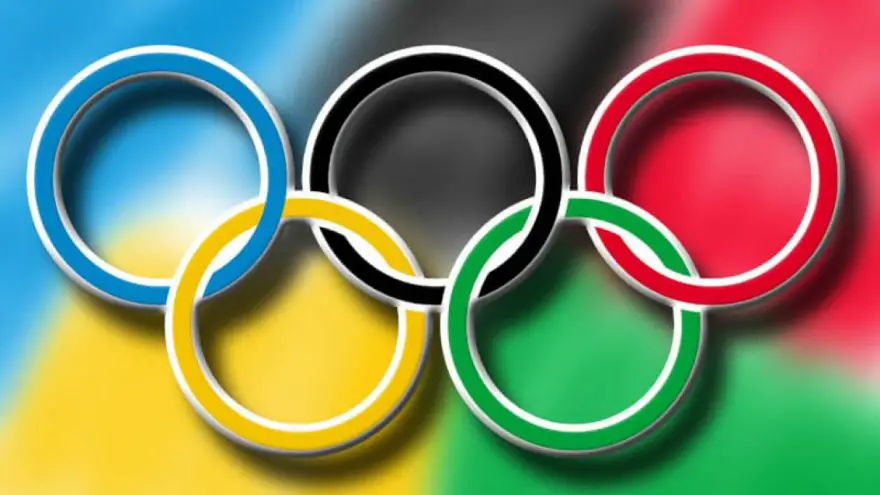PyeongChang 2024 Winter Olympics – First Week, Feb. 12-19th
 PyeongChang 2024 Winter Olympics – First Week, Feb. 12-19th
gearweare.net
PyeongChang 2024 Winter Olympics – First Week, Feb. 12-19th
gearweare.net
The Olympics, which stretch over two and a half weeks, are now over half way over. Throughout the last week competitors from every athletic discipline represented at the games got to compete, and medals have been awarded in everything except hockey. However, the games in both men’s and women’s hockey has been going continuously over the last week. In women’s hockey, an old rivalry will be revamped as the U.S. and Canadian teams are slated to battle it out for gold once again. Men’s hockey is a bit further behind, having just finished the round robin competition. They will start their elimination rounds and the women will have the finale where the top four spots are decided early next week.
Since Monday, February 12th, over 40 gold medals have been awarded. Norway has been the leader by far; they already have 28 medals, 11 of which are gold. Following them are Germany, Canada, Netherlands, and the Olympic Athletes from Russia. The United States is tied with Austria, France, and Japan, each of whom have 10 medals. However, of this groups, the US is winning with the greatest number of gold.
Here are some of the most notable highlights from the last week’s events:
Table of Contents
Snowboarding
The week started out with two consecutive wins for Americans in the halfpipe snowboarding competition. Chloe Kim, from Los Angeles has been pushing the envelope in women’s halfpipe for years, but was not able to attend the 2014 Olympics in Sochi because she was only thirteen at the time. The now seventeen-year-old had already won the gold after her second run, so her third, which was the last run of the event, could have been anything she wanted it to be. Kim decided to go even bigger, topping her already winning score with back-to-back 1080s. This number represents the number of degrees Kim turned in her spins. With a 360 being one full rotation, a 1080 is three times around.
At thirty-one years old and competing in his fourth Olympics, Shaun White, also from Southern California, is who Kim may be in ten years. This halfpipe superstar won gold his first two Olympics, but in Sochi he finished fourth. This year was therefore a redemption round, and redeem he did. The final showdown was between White, and two other riders, Ayumu Hirano of Japan, and Scotty James of Australia. Hirano was in first before White took his final run, but after throwing consequent 1440s followed by two 1260s White took the lead and won his third gold. Usually showing strict emotional control, White proceeded to burst into tears and run to hug his family.
Figure Skating
The first contest won this week in figure skating was the team event. This event always happens before the individual events and is a chance for each team to compete as one unit and earn a medal all together. The Canadians earned enough points to secure gold, with the Olympic Athletes from Russia winning silver and the United States winning bronze.
Germany took the gold in the pairs skating after a fantastic long program. The winning team, made up by Aljona Savchenko and Bruno Massot, was under immense pressure. The 2018 games are Savchenko’s fifth trip to the Olympics, and possibly the last for the thirty-four-year-old. She won bronze in both 2010 and 2014, but had not been able to achieve a gold medal score. Winning gold was therefore incredibly important to Savchenko, and after a mistake in the short program that landed her and Massot in fourth, achieving this goal was looking like it may not be achievable. However, the team was able to complete the only clean performance of the long program, which catapulted them to first place and a world record score in the pairs long program.
The men’s single skate also offered some dazzling performance. Yuzuru Hanyu of Japan won the gold in his second consecutive Olympics, becoming the first person do so in this event. He was joined on the podium by Shoma Uno, another athlete from Japan, and Javier Fernandez of Spain.
Bobsled
The first final in Bobsled took place yesterday, and resulted in a tie. Germany and Canada both turned in total times of three minute and 16.86 seconds in the two man event. The German team, comprised of Francesco Friedrich and Thornsten Margis, had the fastest course run, at 48.96 seconds. Their commitment to speed resulted in a bad crash at the end of this dazzling run. Friedrich, the pilot, ducked down at the last second to reduce the team’s friction, and resultantly crossed the finish line blind. The sled went up on its side, and flipped, pinning the champions beneath. Luckily, neither were hurt, and they came up cheering about their ostentatious win.
Other Notable Events
- Mikaela Shiffrin won gold for America in the ladies’ giant slalom.
- Japan takes the gold in the ladies’ 500m speed skate, with Nao Kodaira in first.
- South Korea wins gold in both the men’s and ladies’ 1,500m short track, with Hyojun Lim and Minijeong Choi coming in first respectively. Sungbin Yun also secured a gold for the host country in men’s skeleton.
- Ester Ledecka of the Czech Republic, shocked the world by winning the alpine skiing event, ladies’ super-G. She is primarily a professional snowboarder, and wasn’t even expected to be particularly competitive.
A Final Thought
Although winning medals is great, it is not really what the Olympics are about. These games have seen its share of sore losers, however, there have also been many examples of athletes supporting each other even in loss. Snowboarders hug it out with the winner, seemingly more excited for their friends win than disappointed about their own loss. The figure skaters also have been treating each other with immense kindness, most offering congratulations to the champions sans tears. Most remarkable, however, has been the inclusion of North Korea in these games. Although the hermit nation has sent athletes to many past Olympics, the last time the games were held in South Korea, their Northern neighbor boycotted the event. This was during the 1988 Summer Olympics in Seoul. The decision by North Korea not to participate was seen as an effort to further fracture relations in the divided nation, while their decision to join this time around is viewed as the opposite – an effort repair and strengthen the long-stressed relationship between the two Koreas.
Bringing the world together are what these games are really about, it is seems that they 2018 PyeongChang Winter Olympics are going to be particularly history in this regard.











